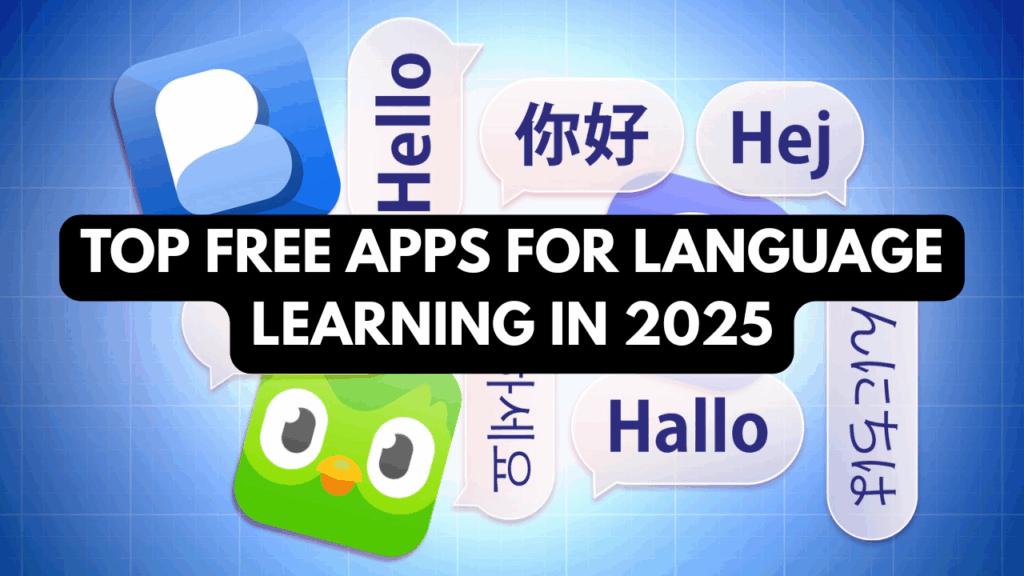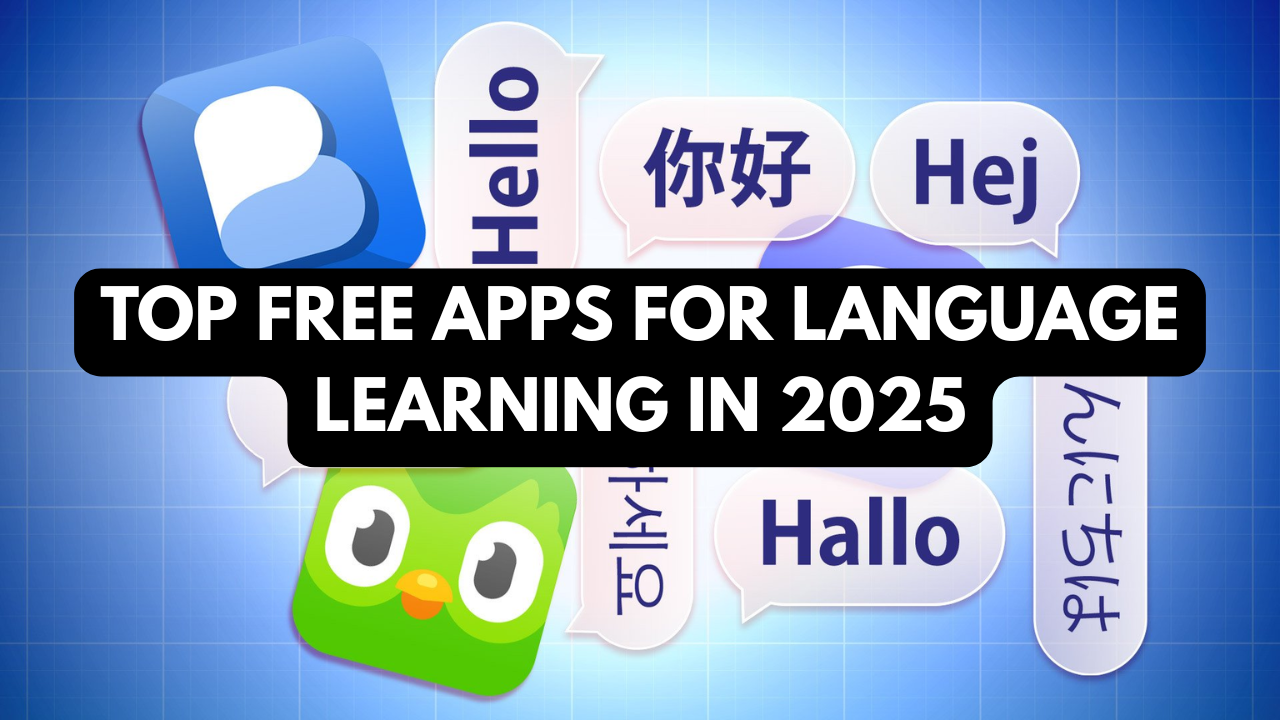
Learning a new language in 2025 has never been more accessible, thanks to a variety of free apps designed to make vocabulary building, grammar practice, and conversational skills more engaging. Whether you are a beginner trying to learn Spanish or an advanced learner polishing your Japanese, these free apps provide structured lessons, interactive exercises, and personalized learning paths. This article explores the top free language learning apps in 2025, their unique features, and practical benefits.
Why Use Language Learning Apps?
Language learning apps have transformed the way people acquire new languages. Traditional classroom learning often requires fixed schedules and significant financial investment. In contrast, apps provide flexibility, personalized pacing, and gamified experiences that encourage consistent practice. Key benefits include:
- Convenience: Learn anywhere, anytime.
- Interactive Learning: Quizzes, flashcards, and games enhance memory retention.
- Community Support: Many apps allow interaction with native speakers.
- Progress Tracking: Users can monitor improvement and adjust learning paths.
Top Free Language Learning Apps in 2025
Below is an overview table summarizing some of the most popular free language learning apps this year:
| App Name | Supported Languages | Key Features | Best For | Platform Availability |
|---|---|---|---|---|
| Duolingo | 40+ | Gamified lessons, streak tracking, bite-sized lessons | Beginners to intermediate learners | iOS, Android, Web |
| Memrise | 20+ | Vocabulary focus, native speaker videos, AI review system | Vocabulary building & retention | iOS, Android, Web |
| Busuu | 15+ | Grammar lessons, writing exercises, language community | Grammar & writing practice | iOS, Android, Web |
| Clozemaster | 100+ | Context-based learning, sentence drills | Intermediate to advanced learners | iOS, Android, Web |
| HelloTalk | 150+ | Language exchange with native speakers, voice messages | Conversational practice | iOS, Android |
| LingQ | 25+ | Reading and listening lessons, spaced repetition | Reading comprehension & listening | iOS, Android, Web |
Duolingo
Duolingo remains one of the most widely used free language learning apps in 2025. Its strength lies in gamified lessons that motivate learners through streaks, points, and challenges. Lessons are bite-sized, making it easier to integrate learning into daily routines. Additionally, Duolingo’s app provides audio exercises to improve pronunciation and listening comprehension.
Memrise
Memrise specializes in vocabulary retention using techniques like spaced repetition and mnemonic devices. One unique feature is its native speaker videos, which expose learners to natural pronunciation and common expressions. Memrise is especially helpful for learners seeking to expand their word bank and improve everyday communication skills.
Busuu
Busuu offers comprehensive grammar lessons, writing exercises, and language community interactions. Users can submit written exercises and receive feedback from native speakers. Its structured grammar-focused approach makes it ideal for learners who want to develop formal language skills alongside casual conversation.
Clozemaster
Clozemaster adopts a context-based approach to language learning, presenting words and phrases within sentences. This helps learners understand how words function in real-life communication. It is particularly beneficial for intermediate and advanced learners who already have basic vocabulary and want to strengthen sentence-level fluency.
HelloTalk
HelloTalk connects learners with native speakers around the world, enabling real-time text and voice exchanges. The social aspect of learning fosters authentic conversational practice. Users can also correct each other’s messages and access translation and pronunciation tools, making this app ideal for practicing speaking and listening skills.
LingQ
LingQ emphasizes reading and listening comprehension, offering extensive lessons derived from real-world content such as articles, podcasts, and audiobooks. Its spaced repetition system ensures that vocabulary is reinforced over time, helping learners remember words longer. LingQ is particularly useful for learners who enjoy immersion-based language learning.
Choosing the Right App
Selecting the right language learning app depends on your goals and learning style. Here’s a simple guideline:
- Casual Learners: Duolingo or Memrise.
- Grammar & Writing Focus: Busuu.
- Intermediate/Advanced Fluency: Clozemaster or LingQ.
- Conversational Practice: HelloTalk.
Most apps are free with optional premium subscriptions, which unlock additional features like offline access or advanced content. Starting with free versions allows learners to explore the app’s methods before committing financially.
Tips for Maximizing App-Based Language Learning
- Consistency Over Duration: Short, daily practice is more effective than occasional long sessions.
- Combine Skills: Focus on reading, listening, speaking, and writing to build balanced fluency.
- Use Multiple Apps: Combining apps like Duolingo for gamification and HelloTalk for conversation can accelerate learning.
- Set Achievable Goals: Track progress with milestones to maintain motivation.
- Engage with Native Content: Incorporate podcasts, songs, or news articles to enhance real-world understanding.
Conclusion
The best free language learning apps in 2025 offer a range of tools to cater to different learning styles and proficiency levels. From gamified exercises in Duolingo to immersive reading in LingQ, learners can find an app that matches their needs. Consistency, engagement, and the right combination of apps can significantly improve language acquisition, making 2025 a year where learning a new language is easier, faster, and more enjoyable than ever.
FAQs
1. Are free language learning apps effective?
Yes, they provide structured lessons and interactive practice, making them highly effective for beginners and intermediate learners.
2. Can I become fluent using only free apps?
While free apps are excellent for learning vocabulary and basic grammar, combining them with real-life practice ensures better fluency.
3. Which app is best for conversational practice?
HelloTalk is ideal because it connects learners with native speakers for real-time conversation

